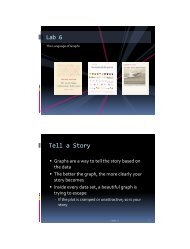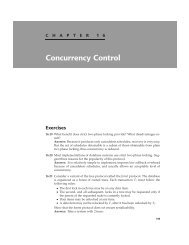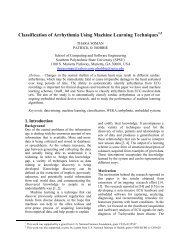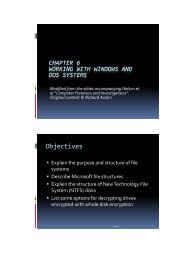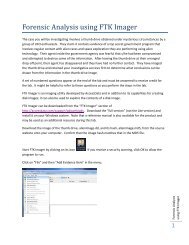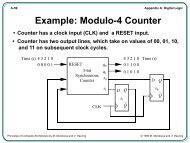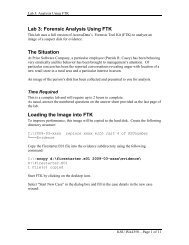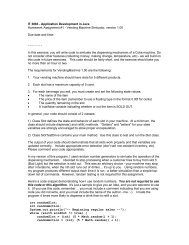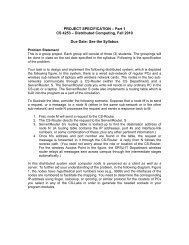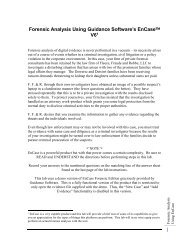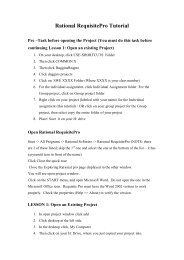Create successful ePaper yourself
Turn your PDF publications into a flip-book with our unique Google optimized e-Paper software.
DRAFT, February 18, 2003, Page 87<br />
System Info – Displays information about the operating system and Java version under which jGRASP is<br />
running.<br />
Run Garbage Collector - frees unused memory (in jGRASP itself) immediately.<br />
17.7 UML Menu<br />
Show UML Window - Brings up the UML window.<br />
Generate/Update UML - Brings up the UML window and updates the UML diagram.<br />
17.8 Open File Dialog<br />
A dialog for opening files.<br />
Filters for the languages supported by jGRASP are provided, as well as the "all files" filter. Note that<br />
language filters classify files based on the extension only if they have not been opened in jGRASP before.<br />
Once a file is opened, jGRASP remembers that language. The default language for files with a ".h"<br />
extension can be set to C++ or C only (not both) by changing the extension settings for C or C++ (see<br />
settings).<br />
You can also type a list of extensions into the "Filter Extensions" field to filter by extensions. These must<br />
be separated by whitespace, and can start with ".", "*.", or nothing. For example: "*.c *.cpp", ".c .cpp", and<br />
"c cpp" will all show only files that end in ".c" or ".cpp".<br />
The language may be forced at load time using the language pulldown menu. This only applies to files<br />
that have not been previously opened in jGRASP. Once a file is opened, its language is remembered.<br />
The Text / Binary radio buttons allow the file to be opened in text mode (UNIX, DOS, and Mac. line<br />
terminators accepted) or binary mode (only newlines are line terminators).<br />
17.9 Autotest Dialog<br />
This dialog will self-test jGRASP CSD generation against a batch of selected files. You can help us test<br />
CSD generation by running autotest on your code. If autotest indicates an error, load the file that caused<br />
the problem into jGRASP (probably by clicking on the error message) and generate a CSD. Note if a CSD<br />
will not generate, or if there is an obvious error in the CSD diagram. If you believe your source code is<br />
valid (and there is not a diagram error caused by a macro or include file in C or C++ code), you can send<br />
us the code that shows the problem (or a mocked-up piece of code, if that is not possible). The chances<br />
are good that we will fix the problem quickly.<br />
Note that autotest may take some time if you apply it to a lot of code.<br />
Here are the tests performed on each file, and for various combinations of CSD properties (boxes on/off,<br />
forced newlines on/off, etc.):<br />
A CSD is generated, which tests the validity of the parser (assuming the source code is valid).<br />
The CSD is compared to the original code to make sure the code was not altered (this test is<br />
done every time a CSD is generated).<br />
The CSD diagram is tested against a set of rules for a well-constructed CSD. C and C++ code<br />
that uses macros or has partial structures in include files may fail this test, and this may not<br />
indicate a problem.<br />
A second CSD is generated from the first to test for stability. That is, to make sure<br />
CSD(CSD(source) = CSD(source).




